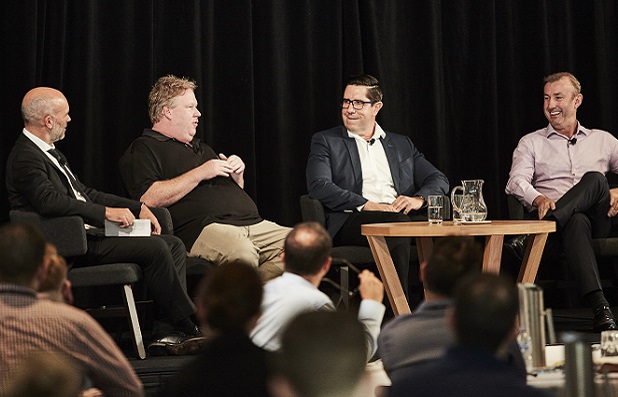By Vanessa Cavasinni, editor Australian Hotelier
The Regional Opportunity panel at the Pub Leaders Summit provided a snapshot of the areas of country pub operations that need a lot of attention, and the challenges a regional hotelier faces.
Sean O’Hara of the Kooringal Hotel in Wagga Wagga and Alistair Flower, owner/operator of Settlers Inn in Port Macquarie discussed their experience working in regional pubs. They were joined by Steve Howarth, ex national operations manager of ALH, and Mathew George, vice president of investment sales in at JLL Hotels & Hospitality, who also used to own a regional pub. While it’s no secret that many operators being priced out of metro areas are turning to regional areas, the panel had a few key lessons to impart for potential country pub operators.
Attractive features
Having operated several regional pubs in New South Wales, O’Hara shared what he and his team normally look for in a pub asset.
“We look straight away at operational hours. If a pub in the country is trading only until 10 o’clock but has a 3am license, we think straight away there’s gaming upside. We obviously have a look at how many machines the venue has and how many entitlements you can go up to. We also look at carparks. We think carparks are important in the country, people feel comfortable parking and walking straight in.”
Community leaders
Flower explained that a regional publican has to be prepared to get genuinely involved in the local community, and become somewhat of a leader in the local area. Howarth agreed, suggesting that the correct management is crucial, and from his own experience corporate models do not work in regional pubs.
“We followed Sean into Wagga [with the purchase of the Farmers Home Hotel] and it’s a very difficult thing if you’ve got a corporate manager going into a regional pub that doesn’t live there and doesn’t have the community connection. The profile of the manager and the local connections is absolutely critical. We bought a pub in Dubbo, struggled for the first two years until we got the right manager with the right local connections, and then it went off the dial. Wagga was a much harder scenario because we had an import, and we did struggle there for quite some time. The profile of the manager is incredibly important, even in terms of being able to recruit and retain good staff.”
George also highlighted why getting the local community onside is more important for regional pubs than in metropolitan hotels, stating: “In regional areas you’re a little bit more led by your clientele as there’s a finite number of customers in that small community. You do the wrong thing and it spreads like wildfire.”
HR focus
One of the biggest lessons Flower learnt when he took over the Settlers Inn as owner/operator about a year ago, was how much time HR would take up.
“I always knew going in there that HR was going to be a challenge, but I wasn’t ready for it to be difficult to that degree. I probably spend 40 per cent of time on HR. I was buying a receivership pub so no one really wanted to work there, but when you build the brand and it becomes half-popular, people are starting to want to come and work for you, but also up in regional areas it’s not just getting uni students in. A lot of the people that you’re employing are single mothers or have stories outside that have led them into working there. So now I’m able to have succession planning in place, so that if I have a problem with my chef I’ve got A, B and C solutions.”
O’Hara agrees, saying that team culture is an important thing to cultivate, but it requires a lot more effort in the country.
“It takes time. It takes time to build the right culture and team. It can take years – you’ve got to be patient.”
Food and gaming
The panel agreed that food and gaming were the two biggest streams of operation for country pub survival.
“[Food] is probably the most important driver, I would say,” stated Howarth. “Gaming is obviously a very profitable part of the business, but unless you can drive people into your pub and have engaged customers, typically around the food, then you won’t get the traffic for the gaming.”
O’Hara also suggested that patrons in regional areas are also more forgiving of bad experiences with food, as long as you rectify the mistake with some genuine hospitality.
As a last word, the panel was asked if they would operate a regional pub without gaming, with O’Hara and Flower agreeing they would not. Howarth added: ‘You’d have to be ballsy.”

